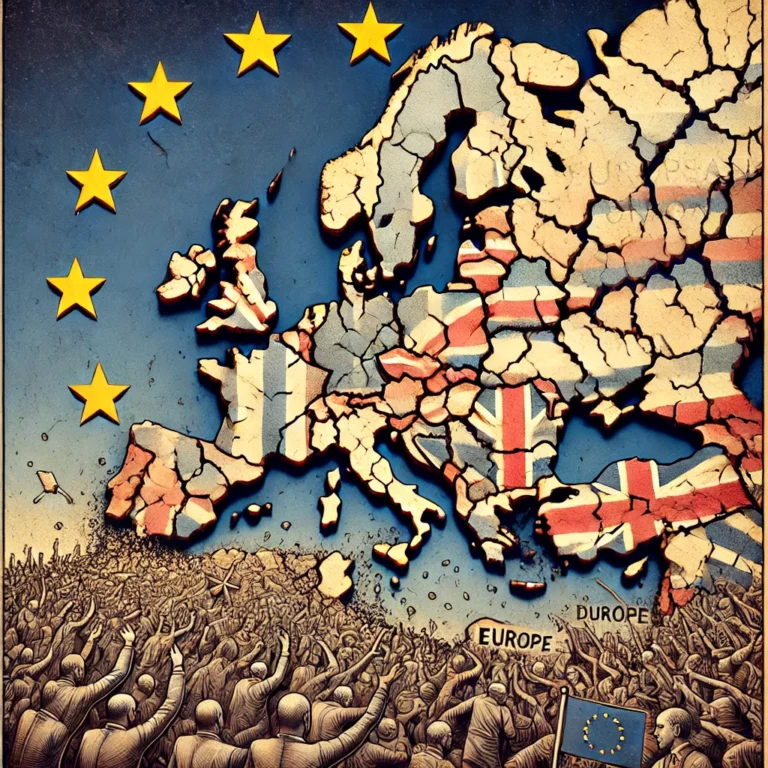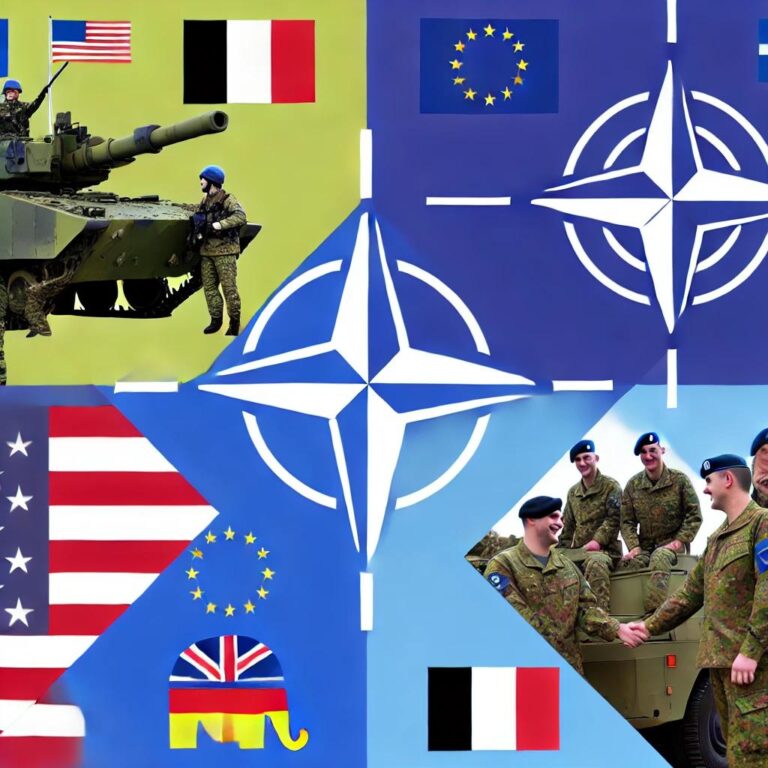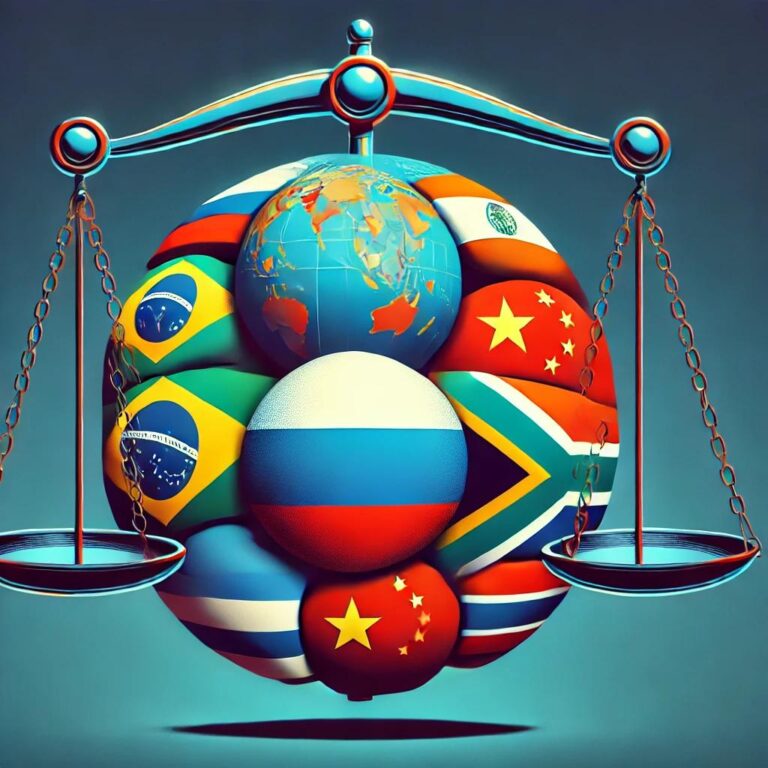
Introduction
The intricate relationship between France and the United States has been shaped by centuries of historical interactions and evolving geopolitical dynamics. From the American Revolution to the present day, the two nations have experienced periods of alliance and tension, cooperation and competition. This blog post aims to delve into this complex relationship, examining the historical ties that have bound France and the USA, and exploring how these interactions have evolved over time.
Historically, France played a crucial role in the American Revolution, providing military support and diplomatic recognition that were pivotal for the United States’ independence. This early alliance established a foundation of mutual respect and cooperation. However, as global political landscapes shifted, so too did the dynamics between the two nations. The 20th century saw France and the USA navigating through world wars, the Cold War, and various international crises, sometimes as allies and at other times as rivals.
In the modern era, the relationship between France and the USA continues to be multifaceted. Issues such as economic competition, cultural exchange, and differing foreign policy approaches have both strengthened and strained their interactions. The geopolitical influence of the USA often casts a long shadow, with France sometimes finding itself at odds with American policies and actions on the global stage.
This blog post will explore several key themes to provide a comprehensive understanding of this relationship. We will examine the historical ties that have shaped their interactions, analyze the geopolitical influences that have impacted their positions, and discuss the pros and cons of their modern-day relationship. By understanding the past and present dynamics, we can better appreciate the complexities of how France has, in some respects, become a victim of USA politics today.
Historical Ties: From Allies to Rivals
The historical relationship between France and the USA is a tapestry woven with threads of both cooperation and rivalry. The alliance between the two nations dates back to the American Revolutionary War. In 1778, France became a crucial ally to the American colonies, providing military support and financial aid that were pivotal in the colonies’ victory over Britain. This early collaboration laid the foundation for a relationship characterized by mutual interests and occasional discord.
One of the most significant events in Franco-American history was the Louisiana Purchase in 1803. In a landmark deal, the United States acquired approximately 828,000 square miles of territory from France, effectively doubling the size of the young nation. This transaction not only reshaped the geopolitical map but also signaled the shifting dynamics between the two countries, as France, under Napoleon, sought to consolidate its resources in Europe.
World Wars I and II further cemented the alliance between France and the USA. During World War I, American forces played a crucial role in supporting the Allies on the Western Front, leading to the eventual defeat of the Central Powers. The collaboration continued into World War II, where the USA’s entry into the war was instrumental in liberating France from Nazi occupation. Despite these periods of intense cooperation, the post-war era introduced new complexities.
The Cold War era marked a time of both collaboration and tension between France and the USA. While both nations were aligned against the Soviet Union, France often pursued a more independent foreign policy under leaders like Charles de Gaulle. This occasionally led to friction, particularly regarding NATO and nuclear deterrence strategies. Nonetheless, the shared goal of containing communism kept the alliance largely intact.
The historical ties between France and the USA illustrate a relationship that has evolved from one of strategic alliance to a more nuanced interplay of cooperation and rivalry. Key events such as the Louisiana Purchase, the World Wars, and the Cold War highlight the enduring yet complex nature of their interactions, reflecting the broader geopolitical currents that have shaped their paths.
Post-Cold War Dynamics
The collapse of the Soviet Union in 1991 marked a significant turning point in global geopolitics, ushering in a new era of unipolarity dominated by the United States. This shift profoundly affected Franco-American relations, as the traditional bipolar world order gave way to American hegemony. France, historically a proponent of a multipolar world, found its role in global politics evolving amidst these changes.
One of the key events shaping Franco-American relations in this period was the expansion of NATO. France, while supportive of a stable and secure Europe, often voiced concerns about the eastward expansion of NATO, fearing it might provoke Russia and destabilize the region. Despite these reservations, France remained an active NATO member, balancing its commitment to European defense with its desire for strategic autonomy.
The Gulf War of 1990-1991 further illustrated the complexities of the Franco-American relationship. While France participated in the coalition forces led by the United States to liberate Kuwait from Iraqi occupation, it did so with a clear emphasis on multilateralism and adherence to United Nations mandates. This approach highlighted France’s inclination towards a collective security framework, contrasting with the more unilateral tendencies of American foreign policy.
Additionally, the post-Cold War era saw France pursuing its own foreign policy initiatives, sometimes diverging from American strategies. In Africa, for instance, France maintained a significant military and economic presence, reflecting its historical ties and strategic interests in the region. This was occasionally at odds with U.S. policy, which focused more on promoting democracy and human rights.
Overall, the post-Cold War period was characterized by a complex interplay of cooperation and contention between France and the USA. While both nations shared common goals of global stability and security, their approaches and priorities often differed, shaping a nuanced and multifaceted relationship that continues to evolve in the modern geopolitical landscape.
Modern-Day Geopolitical Influence
The geopolitical landscape between France and the USA in recent years has been shaped by a multitude of factors, driven largely by the evolving foreign policies of the United States. One significant area of impact has been trade agreements, which have occasionally led to friction between the two nations. For instance, the USA’s approach to tariffs and protectionist policies has sometimes conflicted with France’s commitment to the European Union’s trade regulations, creating a complex dynamic that requires careful negotiation and diplomatic finesse.
Military alliances also play a crucial role in the relationship between France and the USA. Both countries are key members of NATO, and their cooperation is essential for the alliance’s effectiveness. However, the USA’s shifting military strategies, particularly in the Middle East, have sometimes led to disagreements. France has often sought a more autonomous European defense strategy, which can occasionally diverge from American interests, especially in regions like Syria and Iraq.
Diplomatic conflicts have arisen in part due to differing stances on international issues. The USA’s position on climate change, for example, has been a contentious point. While France has been a staunch advocate for the Paris Agreement and other environmental initiatives, the USA’s withdrawal from the agreement under the previous administration created significant diplomatic tension. This divergence in environmental policy underscores broader differences in how the two countries approach global challenges.
Another area of concern is the handling of international organizations like the United Nations. France and the USA have historically collaborated within these institutions, but recent years have seen varying degrees of alignment. The USA’s unilateral actions and occasional skepticism towards multilateral organizations have sometimes put it at odds with France’s more collaborative approach. This has affected joint efforts on issues ranging from international security to human rights.
In conclusion, the modern-day geopolitical influence of the USA on France is multifaceted, encompassing trade, military, and diplomatic dimensions. While both countries share a long history of alliance and cooperation, contemporary challenges necessitate ongoing dialogue and adaptation to navigate the complexities of their relationship.
France as a Victim of USA Politics
In recent years, the intricate relationship between France and the USA has at times placed France in a challenging position, particularly as a result of specific American political maneuvers. One notable example is the economic sanctions imposed by the USA on various countries, which have indirectly impacted French industries. For instance, the US sanctions on Iran have significantly affected French companies like Total S.A. and Airbus, both of which had substantial business interests in Iran. These sanctions have compelled French firms to either withdraw from lucrative contracts or face severe penalties, thereby causing economic setbacks.
Additionally, the USA’s withdrawal from international agreements has further strained France’s geopolitical landscape. A prominent case is the USA’s exit from the Paris Climate Agreement under the Trump administration. This move not only undermined global efforts to combat climate change but also put France in a difficult position as it sought to uphold the agreement’s principles. France had to navigate the diplomatic fallout and work diligently to keep other nations committed to the accord, which required significant diplomatic and political resources.
Furthermore, the USA’s foreign policy decisions have occasionally limited France’s autonomy in its own foreign policy. The American-led NATO interventions and the strategic decisions in the Middle East have often required France to align its policies with those of the USA, sometimes at the expense of its independent foreign policy objectives. The 2011 intervention in Libya, largely driven by NATO and heavily influenced by American interests, is a case in point where France’s involvement was seen as aligning with broader NATO objectives rather than purely French national interests.
While the alliance between France and the USA remains robust, these examples illustrate instances where France’s interests have been compromised due to American political actions. The complex interplay of mutual interests and occasional divergences continues to shape the nuanced relationship between these two longstanding allies.
Pros of the France-USA Relationship
The France-USA relationship is characterized by numerous positive aspects that underscore the enduring partnership between these two nations. One of the most significant benefits is the robust economic ties. France and the USA are each other’s important trading partners, with billions of dollars in goods and services exchanged annually. This economic interdependence fosters job creation and economic growth in both countries, illustrating the tangible benefits of their alliance.
Military cooperation is another cornerstone of the Franco-American relationship. Both countries are members of NATO and collaborate extensively on defense and security issues. Joint military exercises, intelligence sharing, and strategic initiatives have enhanced their capabilities to address global threats effectively. This military partnership not only strengthens their respective national security but also contributes to global stability.
Cultural exchanges further cement the strong bond between France and the USA. Programs such as student exchange initiatives, artistic collaborations, and cultural festivals promote mutual understanding and appreciation. These exchanges enrich the cultural landscape of both nations and foster people-to-people connections that transcend political and economic ties.
Collaboration in science, technology, and education has been particularly fruitful. Joint research initiatives and academic partnerships have led to groundbreaking advancements in various fields, including medicine, environmental science, and aerospace. For instance, the collaboration between NASA and CNES, the French space agency, has been instrumental in numerous space missions and research projects. These scientific endeavors underscore the mutual benefits that arise from pooling expertise and resources.
Examples of successful joint ventures further highlight the positive aspects of the France-USA relationship. The Airbus-Boeing partnership, despite its competitive nature, has led to innovations in the aviation industry. Additionally, the cooperation between French and American companies in sectors such as renewable energy and biotechnology has spurred technological advancements and economic growth.
In essence, the France-USA relationship is underpinned by strong economic ties, military cooperation, and cultural exchanges. Collaborative efforts in science, technology, and education continue to yield significant benefits, reinforcing the enduring alliance between these two nations.
Cons of the France-USA Relationship
The relationship between France and the USA, though historically rich and multifaceted, is not without its drawbacks. Political disagreements have frequently led to diplomatic rifts, straining the alliance at various junctures. One such instance is the differing approaches to international crises. For example, during the Iraq War in 2003, France vehemently opposed the US-led invasion, leading to significant diplomatic tension and a temporary deterioration in bilateral relations. This disagreement highlighted the divergent foreign policy strategies of the two nations, often rooted in their distinct historical and geopolitical perspectives.
Economically, the dominant global position of the USA presents certain disadvantages for France. The American economic hegemony often dictates global trade rules and standards, sometimes to the detriment of French interests. Trade disputes, such as the one over subsidies for aircraft manufacturers Boeing and Airbus, underscore the competitive economic rivalry. These disputes have led to retaliatory tariffs and strained trade relations, affecting various sectors from agriculture to technology. France, as part of the European Union, has also faced challenges in countering the economic clout of the USA, which can leverage its market size and financial power to influence international economic policies.
Cultural clashes further complicate the France-USA relationship. The cultural landscape of the two nations, while mutually influential, often leads to misunderstandings and tensions. France’s emphasis on preserving its cultural heritage and linguistic purity sometimes contrasts sharply with the American ethos of cultural assimilation and innovation. This cultural divergence is evident in areas such as media, cuisine, and language policies. For instance, the French resistance to the dominance of American entertainment media and fast food chains reflects a broader concern about cultural imperialism.
These instances of political, economic, and cultural friction illustrate the complexities inherent in the France-USA relationship. While both nations continue to cooperate on numerous fronts, these drawbacks underscore the challenges they face in maintaining a balanced and mutually beneficial partnership.
Conclusion and Future Outlook
The intricate relationship between France and the USA has evolved significantly over the centuries, shaped by both historical ties and modern-day geopolitical dynamics. Throughout this blog post, we have explored the multifaceted dimensions that characterize this bilateral relationship, ranging from shared democratic values and economic cooperation to occasional political discord and differing international policies.
As we look to the future, it is clear that the France-USA relationship will continue to be pivotal on the global stage. Potential areas for enhanced cooperation include climate change initiatives, technological innovation, and international security. Both nations have demonstrated a commitment to addressing global warming through the Paris Agreement and could further strengthen their collaboration in renewable energy and environmental sustainability.
Technological innovation presents another promising avenue for cooperation. With both countries being leaders in tech and innovation, partnerships in research and development, artificial intelligence, and cybersecurity could yield significant benefits. These collaborative efforts could not only spur economic growth but also address common security concerns in the digital age.
However, challenges remain that need to be navigated carefully. Differences in foreign policy approaches, particularly regarding military interventions and alliances, can lead to friction. The key to managing these challenges lies in sustained diplomatic engagement and mutual respect for each nation’s strategic interests. Constructive dialogue and negotiation will be essential in addressing points of contention and finding common ground.
In conclusion, the relationship between France and the USA is a complex interplay of cooperation and competition, influenced by historical context and contemporary geopolitics. A balanced and nuanced understanding of these dynamics is crucial for fostering a productive and resilient partnership. As both nations continue to adapt to a rapidly changing world, their ability to collaborate effectively will play a significant role in shaping global affairs in the years to come.



